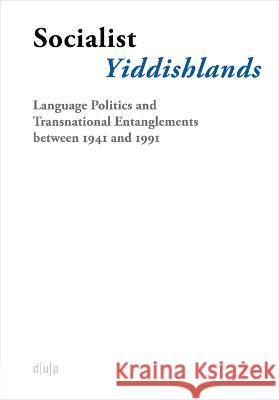Hidden in Plain Sight: Yiddish in the Socialist Bloc and Its Transnationality, 1941-91 » książka
Hidden in Plain Sight: Yiddish in the Socialist Bloc and Its Transnationality, 1941-91
ISBN-13: 9783110763867 / Angielski
After the khurbn (destruction) perpetrated by Nazi Germany, its allies, and collaborators, the Yiddish communities in Eastern Europe were shattered and largely decimated. For most survivors, the old homeland in the East was a lost place of longing and a place of mere transit to the centers of the reconfiguring ‘West’: in North America, the global South, and the young state of Israel. Research has for the most part ignored the cultural activities, the political engagement, and the diverse visions of those cultural activists who remained in Eastern Europe in their thousands. This volume examines their activities as well as the role of and language policy regarding Yiddish in various socialist states, as well as trans-socialist and cross-bloc dialogues during the "Yiddish Cold War." How did the actors position themselves within socialist narratives of the past, present, and future and vis-à-vis the Jewish diasporas? What were their visions for Yiddishlands in the new world of really-existing socialism and how did they attempt to implement them? In this volume, case studies on Poland, the Soviet Union, the German Democratic Republic, and Romania uncover diverse cultural reconstruction initiatives and cross-bloc entanglements with ‘Western’ countries, such as Great Britain, the United States, Argentina, and Israel.











